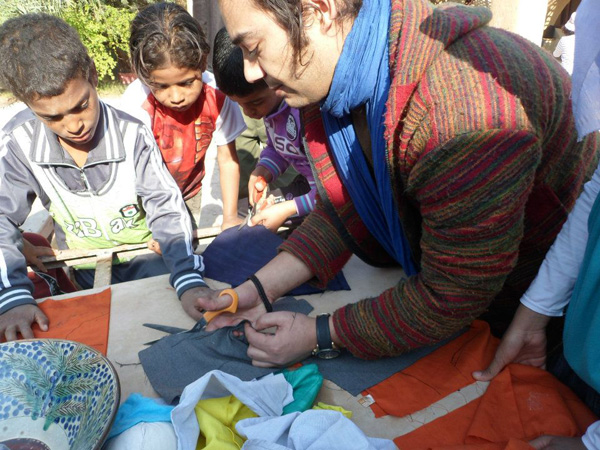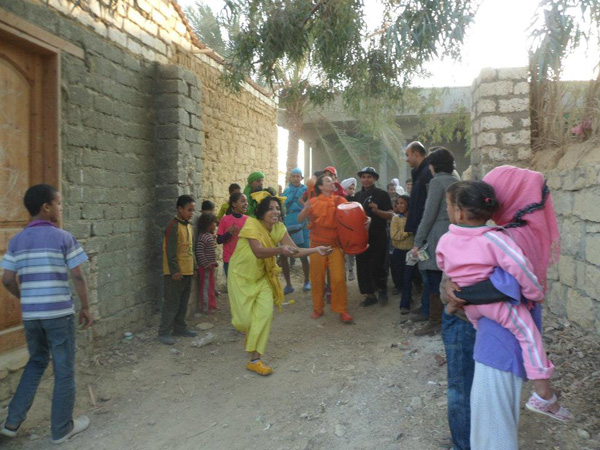Tunis is a regular Egyptian village tucked inside Fayoum governorate, approximately two hours away from Cairo.
This small village gained its popularity as an artistic and cultural hub for handicrafts, drawing craftspeople who have managed to bring out the authentic cultural roots deeply embedded in the village.

Tunis Pottery
Handmade pottery, crafted with lots of passion and creativity, are the main attraction in Tunis.

Tunis Pottery
The late Ahmed Abu Zeid, the founder of the Tunis Pottery Festival, is yet another Fayoum art icon whose dream stretches to including all potters and preserving their heritage.

Tunis Pottery
Since the festival began in 2011 it has become the winter destination for tourists from other parts of Egypt, who flock to enjoy the perfect mélange between culture and nature.

Tunis Pottery
Being a potter for over 30 years, Abu Zeid, who lived in Tunis and had a small pottery workshop there, first thought of the idea of the festival in 2011, after the revolution.
"At that time lots of resident potters were considering leaving the village and taking other jobs for a living," explained Ahmed's son Mohamed Abu Zeid, who is also a potter as well as a pottery professor at the German University in Cairo.
"Local potters started to think differently and to attract Egyptians, instead of foreigners who were scared to come to Egypt at that time, hence came the idea of the festival," he said.
Coming together in September 2011, potters from two workshops and from a local pottery school collaborated to organise the first festival, which was held in December of that year.
The festival, supported by crowd-funding, "was a great success," remembers Mohamed.
The following years Fayoum Governorate pitched in and the small festival was sponsored by lots of potters as well as Bank of Alexandria, and even the Egyptian Mail Organisation, which provided portable ATM machines to promote shopping there.
The annual event then began to include concerts, as well as other handicrafts, and would sometimes attract more people than the village had capacity to host, according to Mohamed.
Despite its great success, the festival's core aims are yet to be fulfilled.
"My father believed that we should pick a village every year and document and research its pottery and potters in order to revive and preserve its authentic handmade techniques, for example Al-Nazla has black mud that is found only in three parts of the world, and the sheikh of potters nowadays ran out of business," says Mohamed.
"Moreover the government no longer accepts 'potter' as a job description on identity cards. They claim it is not a job so long you are not certified, hence they turned it instead into 'street vendor,' " he concluded.
This year, fans of the festival will be hoping that steps are taken towards preserving the potters' livelihoods and ensuring their sustainability.
Programme:
The festival begins on Thursday 1 December and runs for three days.
All photos are courtesy of potter Mohamed abu zeid, featuring his late father potter Ahmed abu zeid, and the first fayoum festival
Short link: